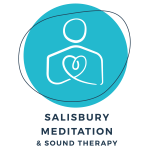Throughout most self-help or meditation practices, “Let it go” is an oversimplified mantra. It can be frustrating to be told to let things go, especially when this instruction comes at a time when we’re struggling with a negative experience or feeling. It can also be difficult to determine what letting go actually refers to. How can we let go when something feels so unfair, scary, or even devastating to us? It can be really tough; however, meditation can offer a transformative and helpful tool…

Why should we let go?
Why do you have to let things go — how does it benefit us?
Trying to let go of negative emotions might feel like defeat, as if you’re somehow condoning a past event. However, this isn’t the case. There’s a big difference between condoning something and accepting that it happened in order to let yourself to move past it — you’re simply doing the latter.
No amount of resistance can change the simple facts of the past, but you do not have to ruin your present or your entire life by living in constant regret, anger or fear over these events. So, the only person who suffers when you hold onto these feelings is you.
Letting go vs Letting it be
During meditation practice, the phrase “Let it go” is commonly used. This saying, which is in so many meditation scripts, comes off as action-based. It implies that if we make the necessary effort, we can rid ourselves of these things as if we’re physically throwing them away. But this can present problems. Ultimately, we cannot force ourselves to think differently. There is no way to just erase thoughts from our minds. Often, when we try to get rid of our thoughts, they actually end up controlling us instead.
When we try to forget, thoughts occupy our mind unnecessarily, allowing their presence to grow. So, another way of thinking about the term “let it go” might be to rephrase it as “let it be”, or to think about letting things “pass us by”. Allowing things to be just the way they are, without trying to change them can be liberating.
If we try to force thoughts away, it only causes things to get worse. When we non-judgmentally observe them, without needing to alter them, we can mend our relationship with ourselves and others. Using non-judgmental observance and daily mindfulness meditation practice can make us much better at practising acceptance; when we embrace radical acceptance, we’ll let go of the need for control. At this point, the thought-form can exit our minds without us actively trying to get rid of it.
Does Meditation help with letting go?
Meditation can help you realise that these negative emotions aren’t what makes you, you. All feelings and thoughts will eventually pass, and we should try not to latch onto them and convince ourselves that they represent us.
Feelings cycle through phases that give the illusion of permanence, but they are really not permanent at all. Nature is full of beautiful cycles of letting go!
Your daily life experiences are also packed with examples of letting go. We let go of each breath in order to make room to take the next one, and each night before we sleep, we let go of the day’s events, experiences and stresses. It’s worth remembering that this process can come naturally whenever you are struggling to let go. By practising a simple breathing meditation, we can shine a light on what’s holding us back and become more accepting of our situation. This allows us to begin letting go of unwanted feelings, thoughts, and actions.
Over time, regular meditation makes us better at observing our thoughts outside of our meditation practice. When we identify negative attachments, the key is to just get back to living an intentional and meaningful life. Be with your friends, do your work, watch nature — whatever it may be. When we learn to live in the present and to flow with everyday life, things are more likely to go well.

How to practice letting go Meditation
There are some things you can do to help yourself let go of whatever it is that’s stopping you live the life you want. Even just a small bit of meditation practice can set us on the path towards achieving this goal. It gives us a chance to reflect on ourselves and identify what we need to let go of, and it provides us with tools for coping with pain and suffering.
Practising daily meditations can help you develop a deeper connection with your inner self, and allow you to understand the true nature of reality. It can plenty of time and some careful thought to get better at letting things go.

Reference: https://mindowl.


Recent Comments